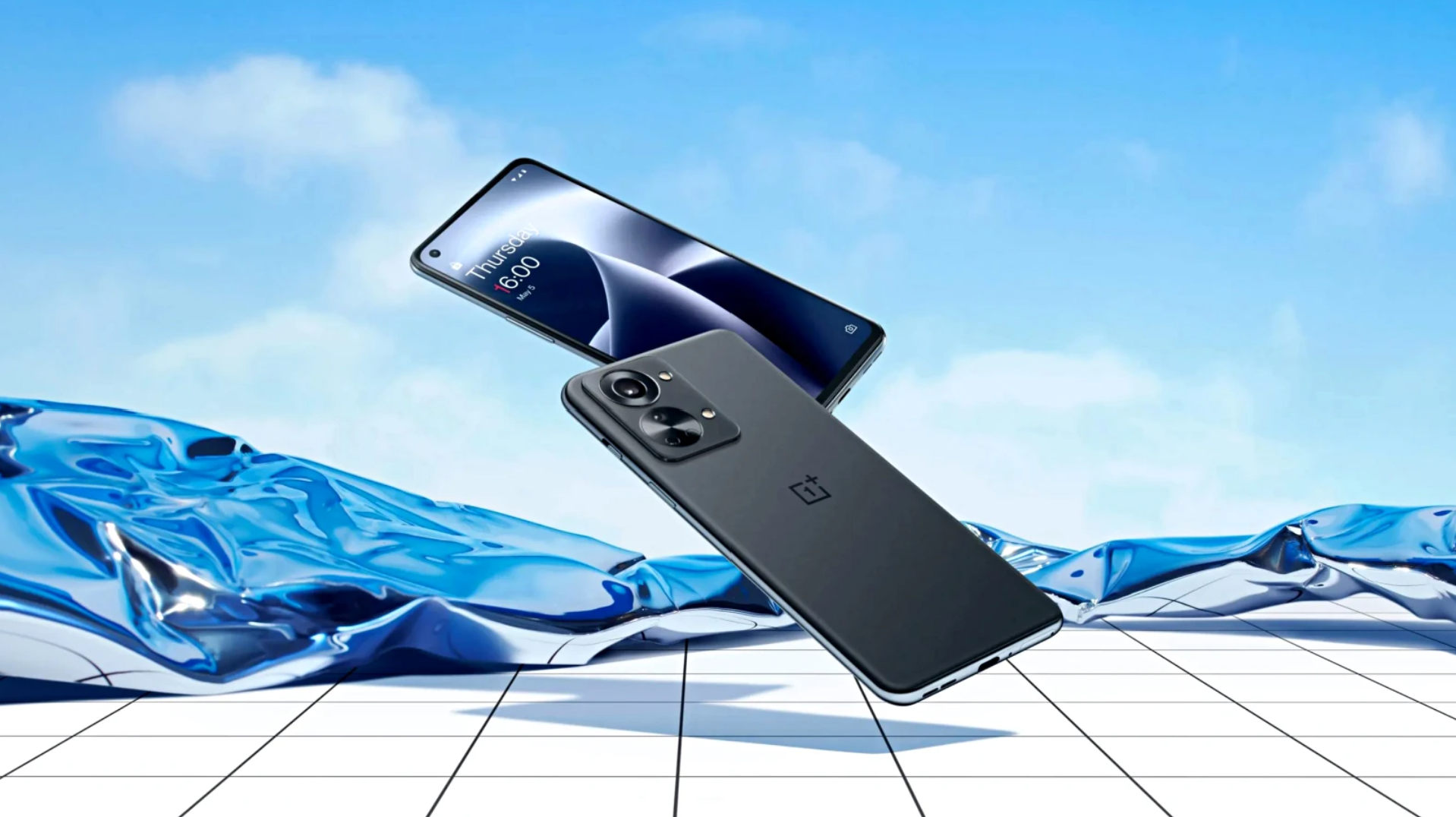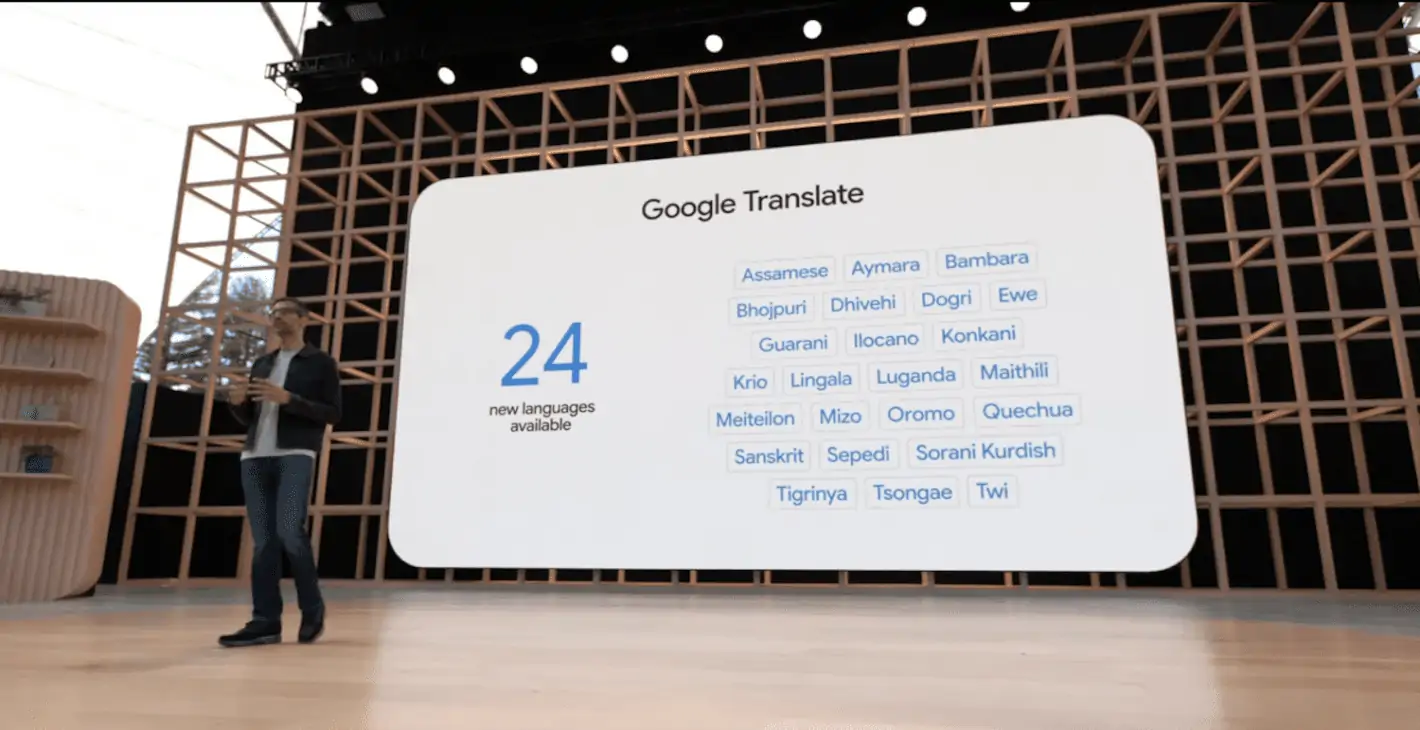MightyText
MightyText was born with this very problem in mind. It does an admirable job at doing what you need in this respect. Syncing up your texts into a web client that you can use to message. You need to install the Android app and the requisite permissions to access your messages and phone calls MightyText can also dial out. The interface is easy to use, with some theme customizations available. You can use the web app or grab a Chrome extension for access.
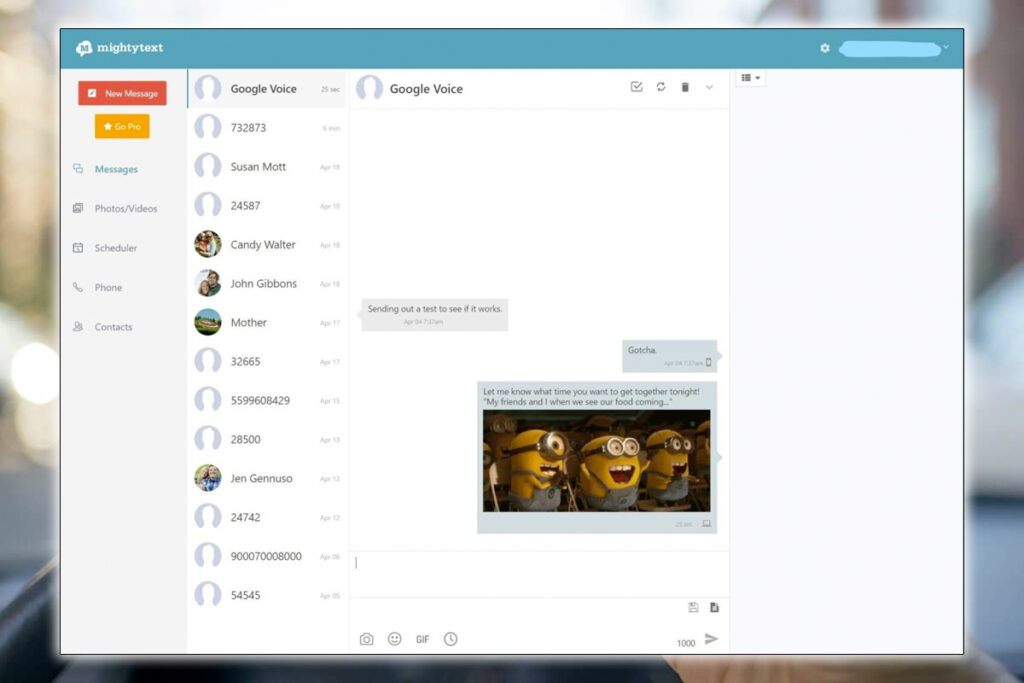
There are definitely some quirks. When you first sync up your messages, the ones archived with Android Messages will appear in the list. You can delete them from MightyText. You can send GIFs, the recipient will get them as a link instead of embedded with the message.
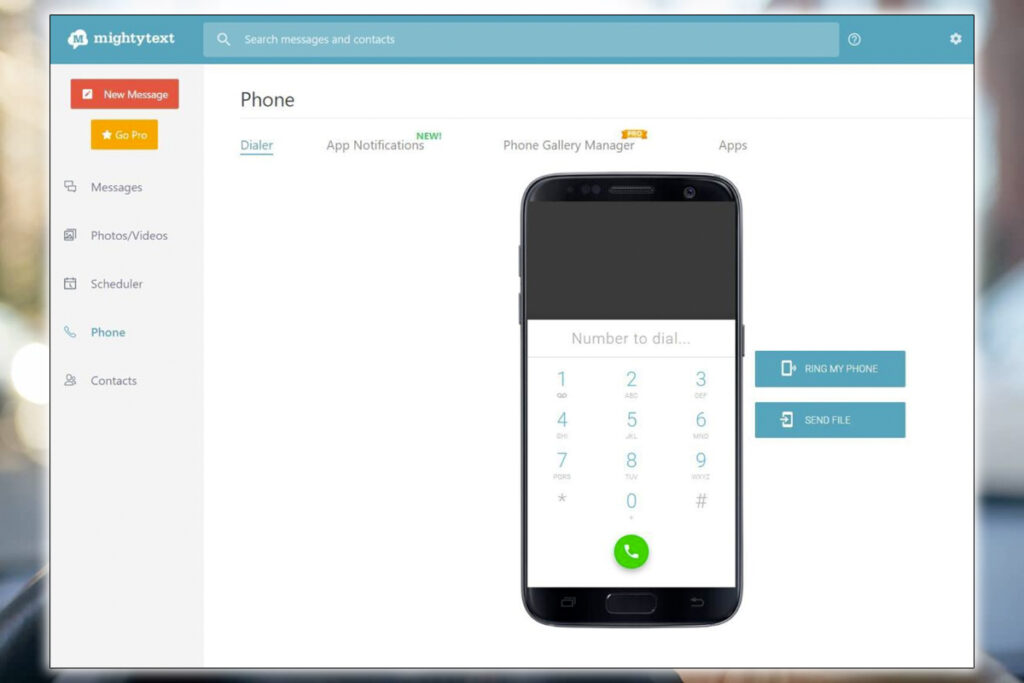
And as with much of life, not everything is free. A $6.67 per month or $79.99 per year pro plan gets you beyond the 250 message limit per month. With offers for other advanced features like notification mirroring and the ability to save schedule drafts.
AirDroid
One of the original apps to mirror your phone to the desktop, AirDroid remains a solid option for keeping your texts in sync across your desktop with your phone.
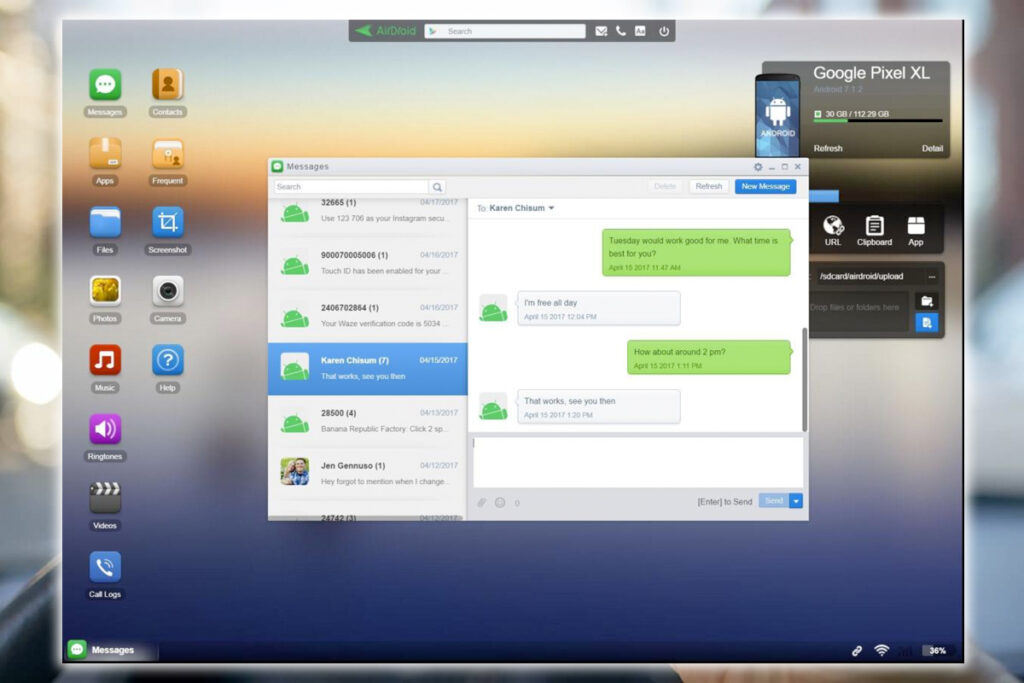
When you grab the Android app and create an account, you’ll be able to sync up not just those messages but other notifications from your phone. A desktop app for Windows, Mac, and Chrome. Puts your message links to other content from your phone at the ready. A word of caution on the Windows version is an offer to install a somewhat spammy search extensio,. It’s an unnecessary piece of software that will force you to re-enable it as the default search in Chrome. Just avoid it. Beyond that, AirDroid does the job well. It’s loaded with other tricks beyond just messaging, like taking a screenshot and displaying all your notifications.
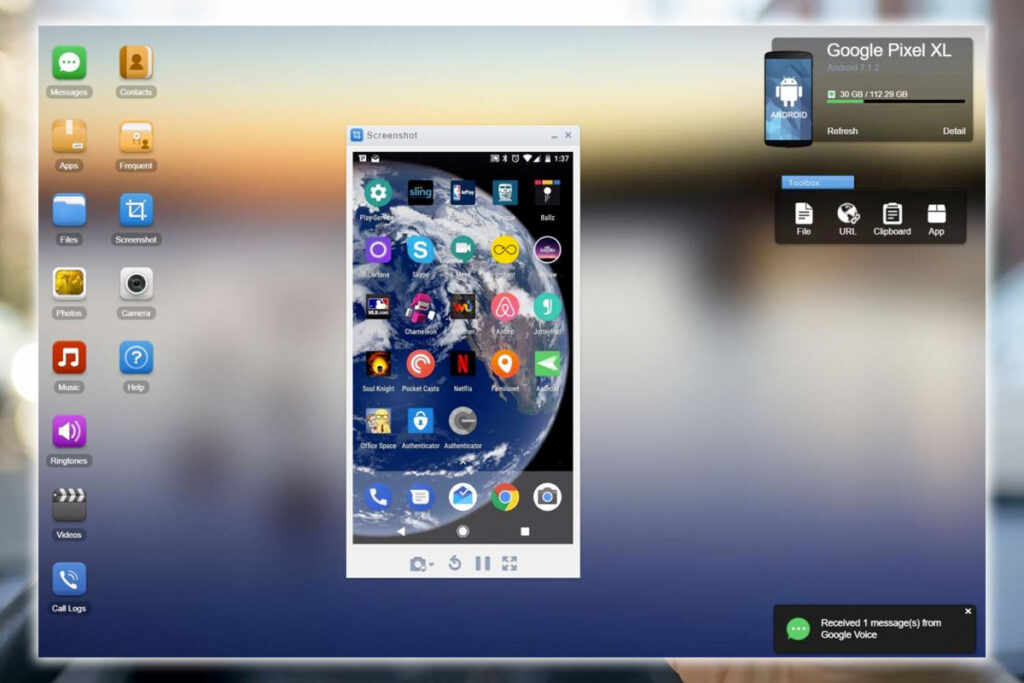
Suppose you want to use AirDroid on an unlimited number of devices. And get complete file transfer, and a batch of other features. You’ll need the $29.99 per year premium plan. There are Monthly or Quarterly subscriptions that may suit you as well.
Pulse SMS (Phone/Tablet/Web)
Pulse is a lean, fast, full-featured SMS app with great Material Design aesthetics. It doesn’t go overboard on the features. It’s quick and smooth and has support for inserting GIFs, photos, and locations. It’s got some excellent customization options for tweaking color, font, day/night modes. And options you want on the notification shade. That’s all in the free Android app. Using the app just as an SMS client is free forever; it’s pretty good at what it does. If you want to message from your tablet or computer, you can pay for a message from anywhere upgrade. After a free one-week trial. It will cost you $2.95 per month or other types of subscription payments on offer.
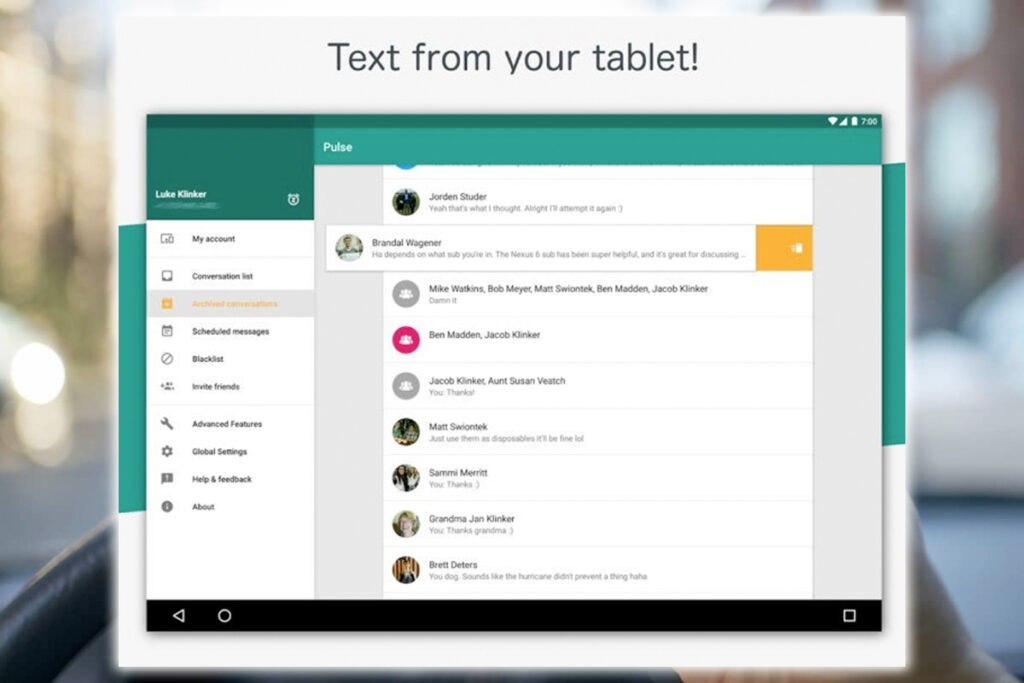
The money goes toward fully encrypting your messages, keeping the apps ad-free. No SMS/MMS app can secure your messages as they’re sent to your contacts. Over-the-top internet messaging platforms can do that. Pulse does end-to-end encrypt your messages between your devices and servers. They can’t see your information. They need it in encrypted form to keep your devices in sync.
Upgrades
Once you shell out for the upgrade. You can use a Chrome app, chrome web extension, Firefox extension, or the Pulse website to text and send SMS MMS messages right from your Windows, Mac, or Chromebook. Or grab the app on a tablet with only Wi-Fi to text. It even supports Android TV! Pulse is made by the same people who make EvolveSMS, a highly customizable texting app for power users. EvolveSMS gives you many options, Its cloud sync was always through some third-party service. Pulse is different. It’s simple, quick, and fully integrated and works excellently.
Voice
It’s easy to consider Voice as an afterthought. The service, which was acquired some years ago by Google. Seemed to languish before the burst of life in early 2017 after the acquisition. The app is available for all platforms on Play Store. It now does the stated purpose very well, mirroring texts, calls, and voicemails across your devices.
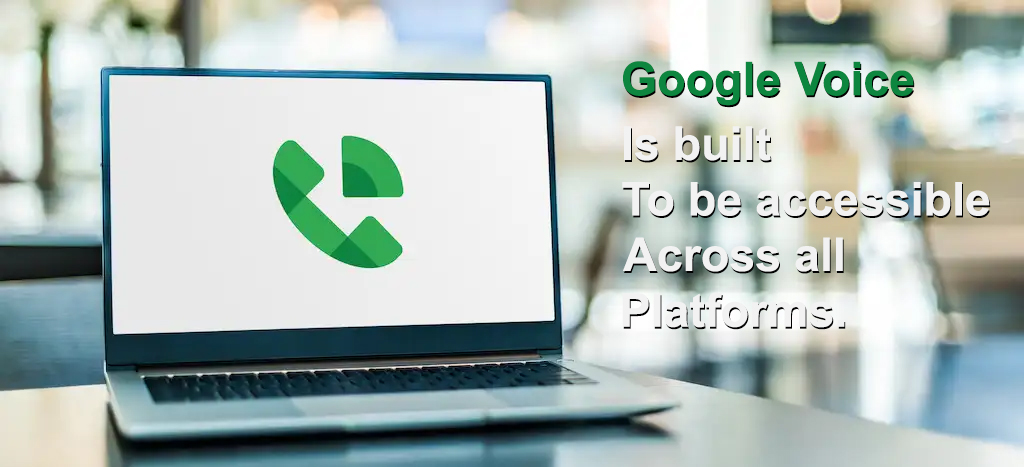
The big gripe is that you either have to use a new phone number that it assigns you or import your own number into Google Voice. Doing that will result in a fee from your carrier, requiring a new phone number. Voice operates as your shadow phone number.
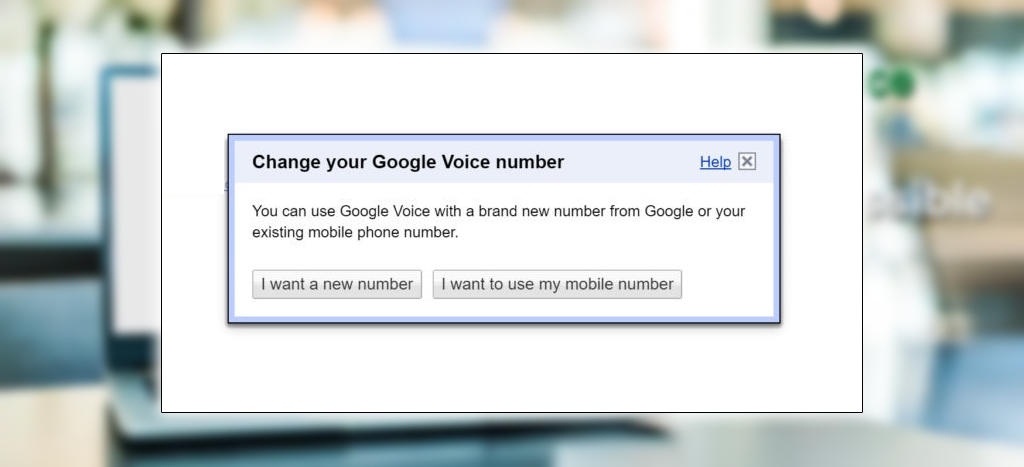
This means Google Voice probably isn’t the ideal solution. If you don’t want the hassle of surrendering their number or changing to a new one. Beyond that, Google did an excellent job modernizing the way Voice works. The SMS/ MMS integration looks solid and is reliable. The app is integral to Google’s strategy to push RCS across to other carriers. It supports when you’re communicating with someone’s phone.
This list tells you one thing for sure. This functionality is a bit messy. There’s no universal app or a first-party solution. As Apple’s iMessage works across iPhones, iPad, and Macs, in 2017. In the 2020s, things are updated to run faster and smoother. You will get that same type of consistency; in most cases. You don’t need over-the-top services like in the past.

